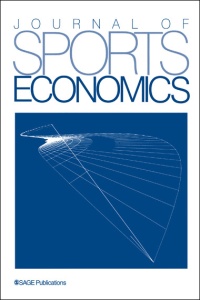Exercise and Happiness in the Disabled
 It’s no secret that physical exercise produces endorphins that make you happy. But a study published in the Journal of Sports Economics looks at the effects of exercise and sports participation in a special (disabled) population, adding a new angle to the current “happiness literature”:
It’s no secret that physical exercise produces endorphins that make you happy. But a study published in the Journal of Sports Economics looks at the effects of exercise and sports participation in a special (disabled) population, adding a new angle to the current “happiness literature”:
Using survey data collected by the Korean Sports Association for the Disabled, all respondents were legally disabled. This study presents empirical evidence of positive ‘‘nonhealth effects’’ of physical activity on life satisfaction. Approximately a one-level jump in physical activity in the six-level score provided the same improvement in life satisfaction as one-quarter of the effect of the employment status change from unemployed to employed. Additionally, the empirical finding that the level of disability was insignificant in determining subjective well-being is consistent with a threshold argument. The authors’ empirical results also support there being no adaptation to disability, in contrast to findings in the psychology literature.
Read the rest of the article in the Journal of Sports Economics, and click here to learn more about the journal, which publishes scholarly research in the field of sports economics with the aim of bringing together theoretical and empirical research in a single intellectual venue.






















































































